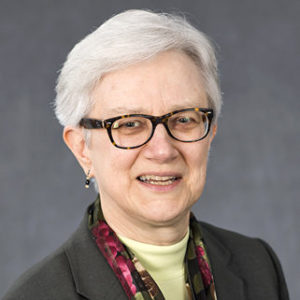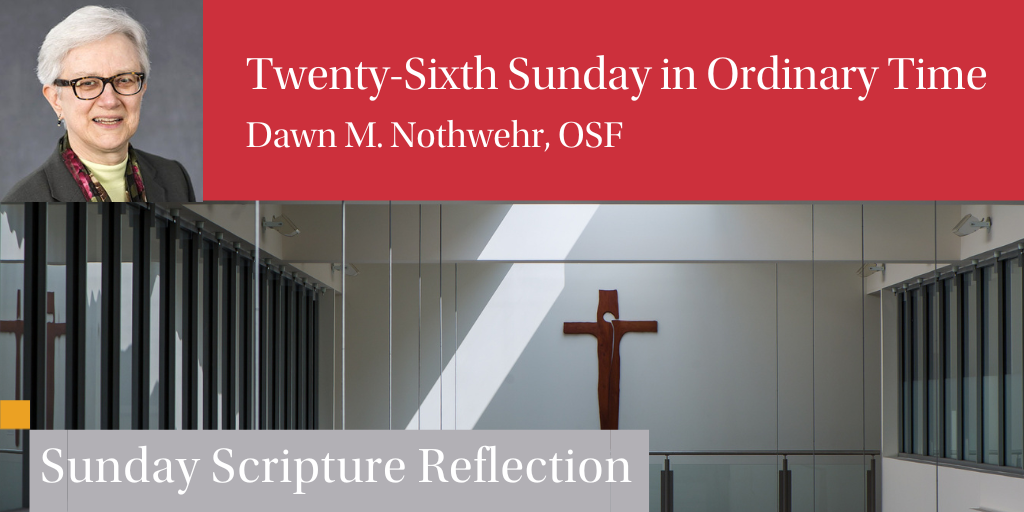
Readings:
Reading I: Amos 6:1a, 4-7
Psalm: 146:7, 8-9, 9-10
Reading II: 1 Timothy 6:11-16
Gospel: Luke 16:19-31
Last Saturday, when grocery shopping, I came upon a young couple with their two small children in the breakfast cereal isle of the local grocery store. The man was reading the weight, contents, and price from the “new sized” cereal boxes of the children’s favorites, while the woman careful entered the data in her calculator. This process went on as they shopped for other food items. It became clear that they were on a very tight budget, and that inflation had hit them very hard.
Meanwhile – I, with my Franciscan vow of poverty – had nonchalantly filled my cart with my favorite items, and then swiped my credit card at the checkout, knowing full well that the bill would be paid in full. But when at home, as I filled my cupboards with my purchases for the month, the images of that couple kept flashing into my consciousness. Clearly, I was living the “American Dream” while that couple and their children found it inaccessible, because of the current economic inflation, but – quite likely also – because their skin tone was darker than my own.
As I read today’s Gospel, perhaps for the first time I identified more with the “rich man dressed in purple garments and fine linens and dined sumptuously each day” than with Lazarus (Lk 16:19). My “grocery store moment” haunted me. As a white woman, well-educated and well-connected socially and professionally, I can get through this inflationary period relatively unscathed, while the family I observed was seemingly barely getting by. Something is terribly wrong with this picture!
In her recent book, Radical Sufficiency: Work, Livelihood, and a U.S. Catholic Economic Ethic, Christine Firer Hinze exposes the very real shortcomings of our national myth, “the American Dream.” She shows how it sidelines persons and communities who are marginalized by known toxic social structures, practices, and institutions. Firer Hinze exposes how at critical times, we – the Catholic Church – have often been on the “wrong side of justice.” But she also reflects deeply on the treasure trove of correctives Catholic Social Teaching holds out to empower us to establish renewed ways of “radical sufficiency” − a conception of economic sufficiency, security, and status that is practically transformative and inclusive of all persons. It is also attentive to “evidence-based disciplines and analysis to understand material, ideological, and structural obstacles to an inclusive livelihood, especially the asymmetries of power and in intersecting, difference-based inequalities of oppression.”
Firer Hinze reflects on the work of the priest-economist-activist Msgr. John A. Ryan (1869-1945) who drew deeply from Catholic Teaching to address the turn of the century struggles of working-class families. Ryan built upon Pope Leo XIII’s Rerum Novarum to promote a “living wage” that provided security against the vicissitudes of life and status for all in the workplace.
However, Firer Hinze moves beyond Ryan, and she shows, using structural analysis, the purposeful, frequently destructive intersecting ways that power operates in labor justice and material well-being. She looks at economic justice through the lenses of gender, race, and class showing how biases have harmfully influenced access to the wage economy. This kind of ethical analysis clearly indicts people like me and cries out for moral action in correction of the injustice.
The Rich Man knew Lazarus’s name – that made him responsible! The fact that the Rich Man knew of Moses and the Prophets – that made him capable. The fact he did not even attempt to act on what he knew, made him morally culpable. We, like the rich man, risk becoming worthy of the stark rebuke of the prophet Amos (6:1a, 4-7):
Thus says the LORD the God of hosts:
Woe to the complacent in Zion!
Lying upon beds of ivory,
stretched comfortably on their couches,
they eat lambs taken from the flock,
and calves from the stall!
Improvising to the music of the harp,
like David, they devise their own accompaniment.
They drink wine from bowls
and anoint themselves with the best oils;
yet they are not made ill by the collapse of Joseph!
Therefore, now they shall be the first to go into exile,
and their wanton revelry shall be done away with.
We have been given not only “Moses and the Prophets” but One who showed us by his life, death, and resurrection – a different way:
By this we came to know the love of God:
That Christ laid down his life for us;
So we ought to lay down our lives for one another.
The Erica and Harry John Family Professor of Catholic Theological Ethics
